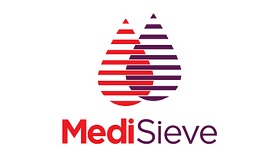
MediSieve Limited
The first platform application that has been developed targets IL-6 and is intended to treat patients suffering from acute hyperinflammation, with a particular focus on patients in the Intensive Care Unit (ICU), who can have mortality rates of up to 30%. MediSieve hopes to provide significant clinical benefit for these patients through a disruptive new treatment approach. Clinical studies are starting in 2022 and market approval for this product is expected in 2024, with more applications of the platform following afterwards.
Magnetic blood filtration is an extracorporeal platform therapy – during treatment, the patient’s blood is continuously circulated through an external circuit. The MediSieve Therapeutic Magnetic Beads are infused into the circuit, mixing with the patient’s blood. The Beads are nanoengineered in order to bind specifically to the clinical target of interest. The blood then passes through MediSieve’s Magnetic Filter which captures the beads and targets bound to them, with the rest of the blood returning to the patient unaffected. The Beads never enter the patient’s body. Watch this video to see more.
The company originally span-out from University College London (UCL) in 2015 on the back of technology developed by CEO George Frodsham during his PhD. Since then, the company has raised £8M (half from grants, half equity investment), and today has 14 employees based at its offices and labs in White City, West London. Since inception, the simple proof-of-concept that existed when the company was founded has been scaled-up and validated, and is now ready for clinical studies.
.png)
.png)